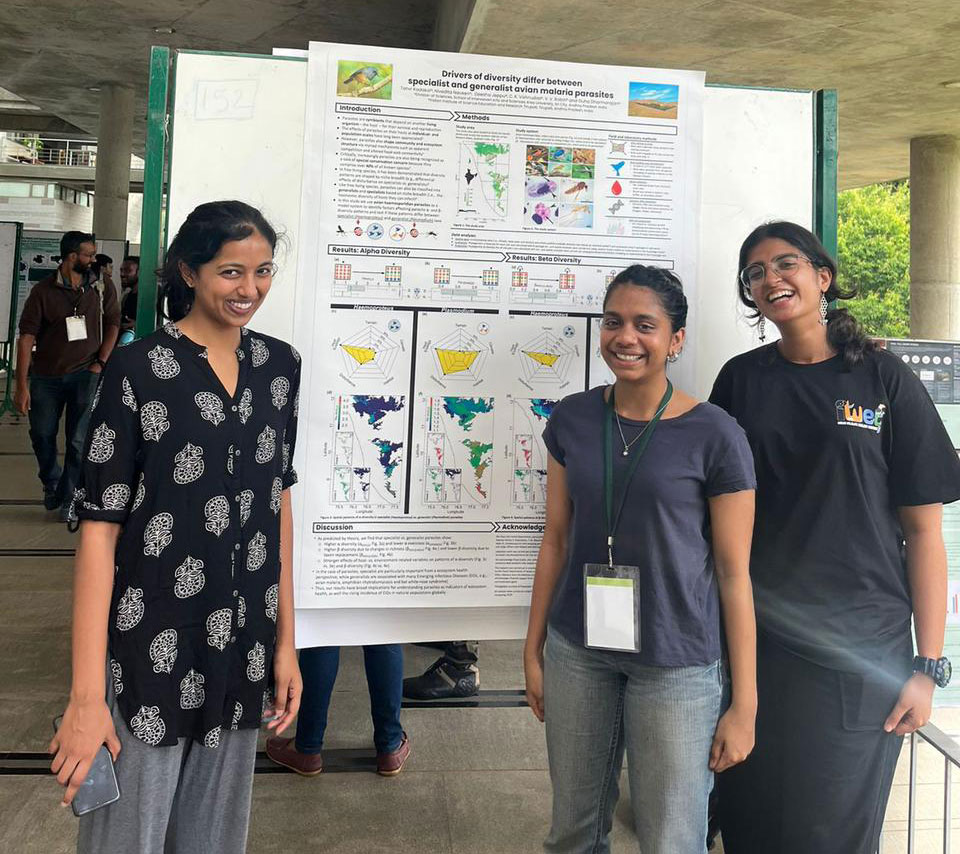Deesha Jeppu, Tanvi Kadakol, and Nivedita Naveen from the Postgraduate Diploma Cohort of 2024, SIAS, Krea University, presented a poster at the Indian Wildlife Ecology Conference (IWEC) 2024. The conference was held at the National Centre for Biological Sciences, Bengaluru, from 14-16 June, 2024. The title of their poster was Drivers of Diversity Differ Between Specialist and Generalist Avian Malaria Parasites.

Poster abstract: Elucidating the mechanisms shaping parasite diversity patterns is critical because parasites encompass about 40% of known species, and play crucial roles in maintaining ecosystem structure and function. In free-living species, patterns of diversity in the Anthropocene are known to be shaped by niche breadth because, as predicted by theory, environmental disturbance is more likely to negatively impact specialist vs. generalist taxa. Like free-living species, parasites too can be categorised as specialists or generalists according to their niche breadth (i.e., host taxonomic diversity). However, unlike free-living species, the effects of niche breadth on parasite diversity patterns remain unclear.
In this study, the students use avian haemosporidian parasites as a model system to identify the factors affecting parasite phylogenetic diversity patterns, and test if these patterns differ between specialist (Haemoproteus) and generalist (Plasmodium) parasites. Their results demonstrate that, in keeping with ecological theory, specialist vs. generalist parasites show: (i) higher α diversity and lower evenness, and (ii) higher β diversity due to changes in richness and lower β diversity due to taxon replacement. Their results also suggest that in specialist parasites diversity is primarily shaped by host-related variables, unlike generalists which are impacted by a variety of host- and environment-related factors. Their results have broad implications for understanding the role of parasites as indicators of ecosystem health, as well as the effects of anthropogenic environmental modification on the rise of emerging infectious diseases.
View the poster